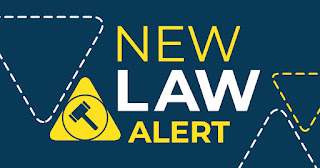Beginning June 20, 2020, courts will accept new eviction matters – statewide eviction moratorium expires (Executive Order 202.28).
To facilitate this, the Chief Administrative Judge released a memorandum setting the procedures for residential and commercial eviction proceedings in New York State.
Now, commencement documents in eviction proceedings must be filed with the court by NYSCEF or mail. Further, until further order, petitions in commercial and residential eviction proceedings based on nonpayment of rent or on other grounds must include the following:
- Form petitioner’s attorney affirmation or petitioner’s affidavit (for self-represented petitioners), indicating that counsel / petitioner has reviewed the various state and federal restrictions and qualifications on eviction proceeding and believes in good faith that the proceeding is consistent with those restrictions and qualifications; and
- Form notice to respondent-tenants (in both English and Spanish), informing them they may be eligible for an extension of time to respond to the petition in light of legal directives related to the COVID-10 pandemic, and directing them to a telephone number and/or website link for further information.
The memorandum further stays the hearing of the eviction matter until the Executive Orders suspending statutory time periods for legal matters expire. However, eviction matters commenced on or before March 16, 2020 in which all parties are represented by counsel shall be eligible for calendaring for virtual settlement conferences.
Also, the New York State Courts Electronic Filing System (NYSCEF) will accept New York City Housing Court matters later this summer.











